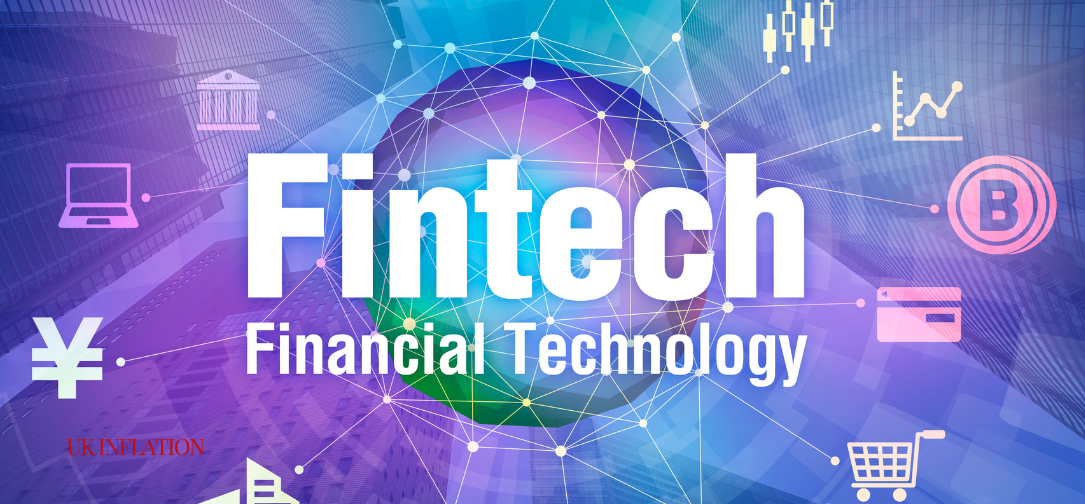The United States boasts one of the largest and most dynamic economies globally, characterized by a diverse array of industries and robust economic indicators. As of the latest data, the Gross Domestic Product (GDP) of the United States stands at approximately $23 trillion, making it the largest national economy worldwide. The economy has been experiencing a steady growth rate, averaging around 2.3% annually over the past decade, with periodic fluctuations due to global economic conditions and domestic policy changes.
Unemployment rates in the US have generally remained low, hovering around 4-5% pre-pandemic and recovering to similar levels post-pandemic. Inflation rates have seen a recent uptick, driven by supply chain disruptions and increased demand as the economy rebounds from COVID-19 impacts. The US dollar remains a dominant global currency, underpinning international trade and finance.
Key Industries and Economic Drivers
The US economy is driven by several key industries including technology, healthcare, finance, manufacturing, and retail. The technology sector, centered in Silicon Valley, is a powerhouse, contributing significantly to GDP and innovation. Healthcare and pharmaceuticals are also major contributors, driven by advancements in medical research and an aging population.
The finance sector, inclusive of banking, insurance, and real estate, remains a cornerstone of the economy, supported by the country’s sophisticated financial infrastructure. Manufacturing, though smaller than in past decades, still plays a crucial role, particularly in aerospace, automotive, and consumer goods. Retail, buoyed by strong consumer spending, is another vital component, with e-commerce rapidly growing in importance.
Overview of the Financial Sector
The US financial sector is highly developed, encompassing a broad range of services from traditional banking to innovative financial technologies. It includes commercial banks, investment banks, insurance companies, asset management firms, and, increasingly, fintech companies. Wall Street, home to the New York Stock Exchange (NYSE) and NASDAQ, is the epicenter of global finance.
Traditional banks like JPMorgan Chase, Bank of America, and Citibank dominate the sector, but they are increasingly complemented and challenged by fintech startups and tech giants like PayPal, Square (now Block, Inc.), and Apple Pay. The financial sector is characterized by high levels of competition, stringent regulation, and continuous innovation.
The Evolution of Fintech in the USA
The evolution of fintech in the United States can be traced back to the advent of the internet and the subsequent digitization of financial services. Key milestones include the establishment of PayPal in 1998, which revolutionized online payments. The 2008 financial crisis spurred further innovation, leading to increased investment in fintech solutions aimed at enhancing financial stability and accessibility.
In the 2010s, the rise of smartphones and mobile apps transformed fintech, with companies like Square and Venmo leading the charge in mobile payments. The introduction of blockchain technology and cryptocurrencies, notably Bitcoin, in 2009, marked another significant milestone, introducing decentralized finance concepts to the mainstream.
Key Figures and Pioneers in the Fintech Sector
Prominent figures in the US fintech sector include Elon Musk, Peter Thiel, and Max Levchin, co-founders of PayPal, who have continued to influence the industry through various ventures. Jack Dorsey, co-founder of Twitter and Square, has been instrumental in advancing mobile payment solutions. Other key pioneers include Brian Armstrong of Coinbase, a leading cryptocurrency exchange, and Chris Larsen of Ripple, a major player in blockchain-based payments.
Government Initiatives and Support for Fintech Innovation
The US government has played a crucial role in fostering fintech innovation through various initiatives and regulatory frameworks. The JOBS Act of 2012, for instance, facilitated crowdfunding by easing securities regulations. More recently, the Office of the Comptroller of the Currency (OCC) has been granting special purpose national bank charters to fintech companies, enabling them to operate with greater regulatory clarity.
Government agencies like the Securities and Exchange Commission (SEC) and the Consumer Financial Protection Bureau (CFPB) actively engage with fintech startups to ensure compliance while promoting innovation. Additionally, state-level initiatives, particularly in fintech hubs like California and New York, provide further support through grants, tax incentives, and public-private partnerships.

Regulatory Environment for Financial Technology in the US
The US financial regulatory landscape is complex, involving multiple agencies with overlapping jurisdictions. Key regulatory bodies include the Federal Reserve, the SEC, the Commodity Futures Trading Commission (CFTC), and the OCC. Each plays a role in overseeing different aspects of the financial system, from banking and securities to commodities and derivatives.
Specific Regulations Impacting Fintech
Fintech companies must navigate a web of regulations, including the Bank Secrecy Act (BSA), which mandates anti-money laundering (AML) compliance, and the Dodd-Frank Wall Street Reform and Consumer Protection Act, which introduced significant changes following the 2008 financial crisis. The General Data Protection Regulation (GDPR) and the California Consumer Privacy Act (CCPA) impact data privacy and protection practices.
Regulations specific to cryptocurrencies and blockchain technology, such as the SEC’s guidance on Initial Coin Offerings (ICOs) and the Internal Revenue Service (IRS) guidelines on crypto taxation, also significantly impact the fintech landscape.
Government Policies and Frameworks Supporting Fintech Growth
The US government supports fintech growth through policies aimed at fostering innovation while ensuring consumer protection and financial stability. The OCC’s fintech charter and the CFPB’s regulatory sandbox, which allows fintech startups to test products under relaxed regulatory conditions, are notable examples. Additionally, federal and state governments offer grants, tax incentives, and other financial support to fintech startups.
Challenges and Opportunities in the Regulatory Landscape
The regulatory environment poses both challenges and opportunities for fintech companies. Navigating complex and sometimes conflicting regulations can be costly and time-consuming. However, clear regulatory frameworks can enhance consumer trust and facilitate growth. The evolving nature of fintech necessitates ongoing dialogue between regulators and industry participants to ensure regulations keep pace with innovation.
The Fintech Ecosystem in the US
The US fintech ecosystem comprises a diverse array of players, from nimble startups to established financial institutions and tech giants. Startups like Robinhood, Affirm, and Stripe have gained significant market share by offering innovative solutions in trading, lending, and payments. Established companies like Goldman Sachs and JPMorgan Chase are also heavily investing in fintech, developing their own digital solutions and partnering with startups.
Tech giants such as Google, Apple, and Amazon are increasingly venturing into fintech, leveraging their vast user bases and technological expertise to offer payment services, digital wallets, and even lending products.
Overview of Fintech Hubs and Innovation Centers
The US is home to several major fintech hubs and innovation centers. Silicon Valley remains the epicenter of tech innovation, with a high concentration of fintech startups and venture capital funding. New York City, with its proximity to Wall Street, is another major hub, attracting fintech companies focused on capital markets and banking.
Other notable hubs include Boston, known for its strong academic institutions and biotech startups; Austin, with its vibrant tech scene; and Miami, which is emerging as a new hotspot for fintech and crypto startups.
Role of Incubators, Accelerators, and Venture Capital
Incubators and accelerators play a crucial role in nurturing fintech startups by providing mentorship, resources, and funding. Programs like Y Combinator, Techstars, and 500 Startups have been instrumental in the success of numerous fintech companies. Venture capital firms, including Andreessen Horowitz, Sequoia Capital, and Accel, are also heavily invested in fintech, providing the necessary capital to scale innovative solutions.
Collaboration Between Banks and Fintech Companies
Collaboration between traditional banks and fintech companies is increasingly common, as financial institutions seek to leverage fintech innovations to enhance their offerings. Banks partner with fintech firms to offer digital banking services, streamline operations, and improve customer experiences. Examples include Goldman Sachs’ partnership with Apple to launch the Apple Card and JPMorgan Chase’s collaboration with OnDeck to offer small business loans.
Major Fintech Segments in the US
Digital payments and mobile banking are among the most prominent segments of the US fintech market. Companies like PayPal, Venmo, and Square have revolutionized how consumers and businesses handle transactions. Mobile banking apps from both fintech startups and traditional banks offer convenient, real-time financial services to consumers.
Peer-to-Peer Lending and Crowdfunding
Peer-to-peer lending platforms such as LendingClub and Prosper have democratized access to credit, allowing individuals to borrow directly from other individuals or institutions. Crowdfunding platforms like Kickstarter and Indiegogo enable entrepreneurs to raise funds for their projects, bypassing traditional financing routes.
Blockchain and Cryptocurrencies
Blockchain technology and cryptocurrencies represent a rapidly growing segment of the fintech market. Bitcoin, Ethereum, and other cryptocurrencies offer decentralized alternatives to traditional currencies. Companies like Coinbase and Kraken provide platforms for trading and storing digital assets, while Ripple and Stellar focus on blockchain-based payment solutions.
Insurtech (Insurance Technology)
Insurtech companies are transforming the insurance industry by leveraging technology to improve customer experiences and streamline operations. Startups like Lemonade, Root Insurance, and Policygenius offer innovative insurance products and services, ranging from personalized policies to instant claims processing.
Regtech (Regulatory Technology)
Regtech solutions help financial institutions comply with regulatory requirements more efficiently. Companies like Ayasdi, Trulioo, and ComplyAdvantage provide tools for AML compliance, fraud detection, and regulatory reporting, leveraging advanced technologies such as AI and machine learning.
Wealthtech (Wealth Management Technology)
Wealthtech firms offer digital tools and platforms for wealth management, enabling consumers to invest and manage their finances with ease. Companies like Betterment, Wealthfront, and Personal Capital provide robo-advisory services, automated investment strategies, and personalized financial planning.
Technological Infrastructure Influencing Fintech Boom in the US
The widespread availability of high-speed internet and the proliferation of smartphones have been critical to the fintech boom in the US. With internet penetration rates exceeding 90% and mobile phone ownership at similar levels, consumers have easy access to digital financial services.
Availability of Financial and Tech Talent
The US boasts a deep pool of financial and tech talent, supported by world-class universities and a vibrant startup culture. Cities like San Francisco, New York, and Boston attract top talent in finance, engineering, and computer science, fueling innovation in fintech.
Key Technological Innovations Driving Fintech
Technological advancements such as artificial intelligence (AI), machine learning (ML), blockchain, and big data analytics are driving fintech innovation. AI and ML enable personalized financial services and improved risk management, while blockchain technology offers secure, transparent transaction mechanisms. Big data analytics allows for better customer insights and decision-making.

Adoption and Impact of Financial Technology in the US
Fintech adoption rates in the US are high, with consumers across various demographics embracing digital financial services. Millennials and Gen Z are the most avid users, drawn to the convenience and accessibility of mobile banking, digital payments, and investment apps. However, older generations are also increasingly adopting fintech solutions, particularly in the wake of the COVID-19 pandemic.
Impact on Traditional Financial Institutions
Fintech innovations have significantly impacted traditional financial institutions, driving them to modernize their operations and adopt digital solutions. Banks and financial firms are investing heavily in technology to remain competitive, improve customer experiences, and reduce operational costs.
Case Studies of Successful Fintech Companies
Case studies of companies like PayPal, Square, and Robinhood highlight the transformative impact of fintech. PayPal revolutionized online payments, Square democratized point-of-sale systems for small businesses, and Robinhood disrupted the brokerage industry with commission-free trading. These companies demonstrate the potential for fintech to drive significant change and create new market opportunities.
Socio-Economic Impacts, Including Financial Inclusion
Fintech has the potential to enhance financial inclusion by providing access to financial services for underserved populations. Mobile banking, peer-to-peer lending, and digital wallets offer convenient alternatives to traditional banking, helping to bridge the gap for unbanked and underbanked individuals. Additionally, fintech innovations can reduce transaction costs and improve financial literacy, contributing to broader socio-economic benefits.
Challenges and Risks Faced by Financial Technology Businesses in the US
Cybersecurity and data privacy are critical concerns for fintech companies, given the sensitive nature of financial data. Ensuring robust security measures and compliance with data protection regulations like GDPR and CCPA is essential to maintain consumer trust and safeguard against cyber threats.
Market Competition and Sustainability of Fintech Companies
The fintech market is highly competitive, with numerous startups vying for market share alongside established financial institutions and tech giants. Sustainability is a key challenge, as fintech companies must continuously innovate and scale their operations to remain viable.
Economic and Geopolitical Risks
Fintech companies are also exposed to economic and geopolitical risks, including market volatility, regulatory changes, and global trade tensions. Navigating these risks requires strategic planning and adaptability.
Regulatory Hurdles and Compliance Costs
Regulatory compliance is a significant challenge for fintech companies, given the complex and evolving nature of financial regulations. Compliance costs can be substantial, particularly for startups with limited resources. However, clear regulatory frameworks can provide stability and foster innovation.
Future Trends and Predictions of the US Fintech Market
Emerging technologies such as AI, ML, and the Internet of Things (IoT) are poised to further transform the fintech landscape. AI and ML can enhance personalized financial services, improve fraud detection, and optimize risk management. IoT can enable new payment solutions and enhance connectivity between financial devices.
Predictions for the Future of Fintech in the Country
The future of fintech in the US looks promising, with continued growth and innovation expected. Key trends include the rise of decentralized finance (DeFi), increased adoption of digital currencies, and the integration of fintech solutions into everyday consumer and business activities. Collaboration between fintech companies and traditional financial institutions is likely to deepen, driving further innovation and efficiency.
Potential for International Expansion and Global Partnerships
US fintech companies have significant potential for international expansion and global partnerships. As financial services become increasingly digital and borderless, fintech firms can leverage their technological expertise to enter new markets and form strategic alliances with global partners.
Personal Stories and Interviews from Successful Fintech Leaders in the US
Interviews with fintech leaders such as Tim Newell, CEO Of Aspiration, and Jim Mackey, CFO of Revenue Grid, reveal insights into their journeys and the challenges they have faced. Tim emphasizes the importance of climate-friendly financial technology services, while Jim discusses how businesses can meet their revenue targets with the help of fintech tools.
Testimonials from consumers and businesses highlight the tangible benefits of fintech solutions. For instance, small business owners using Square’s point-of-sale systems report increased sales and improved customer satisfaction, while individual investors using Robinhood appreciate the accessibility and affordability of stock trading.
The fintech journey is marked by both challenges and successes. Stories of overcoming regulatory hurdles, securing funding, and scaling operations illustrate the resilience and innovation of fintech entrepreneurs. Successful exits, such as PayPal’s acquisition by eBay and Square’s IPO, demonstrate the significant impact and growth potential of fintech companies.
Conclusion
The US fintech market is a dynamic and rapidly evolving landscape, characterized by innovation, competition, and regulatory complexity. Key segments such as digital payments, blockchain, and insurtech are driving significant change in the financial sector. The regulatory environment presents both challenges and opportunities, while emerging technologies promise to further transform the industry.
The future of fintech in the US is bright, with continued growth and innovation expected. Collaboration between fintech companies, traditional financial institutions, and regulatory bodies will be crucial to fostering a sustainable and inclusive financial ecosystem. As fintech solutions become more integrated into everyday life, they have the potential to enhance financial inclusion, improve consumer experiences, and drive economic growth.
Stakeholders in the fintech ecosystem, including entrepreneurs, investors, regulators, and consumers, must continue to engage in open dialogue and collaboration to navigate challenges and seize opportunities. By fostering a supportive and innovative environment, the US can maintain its leadership in the global fintech market and ensure that the benefits of fintech innovation are broadly shared.



































